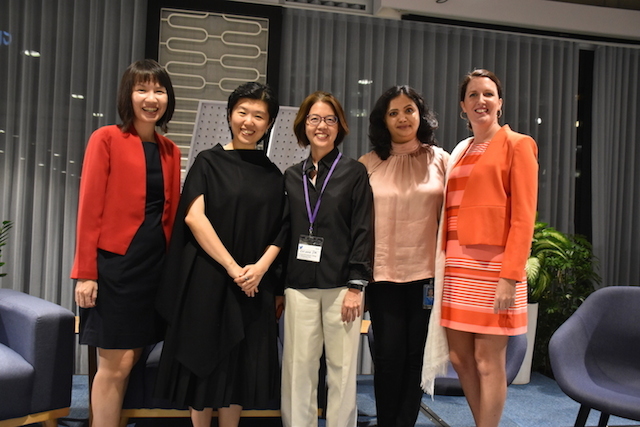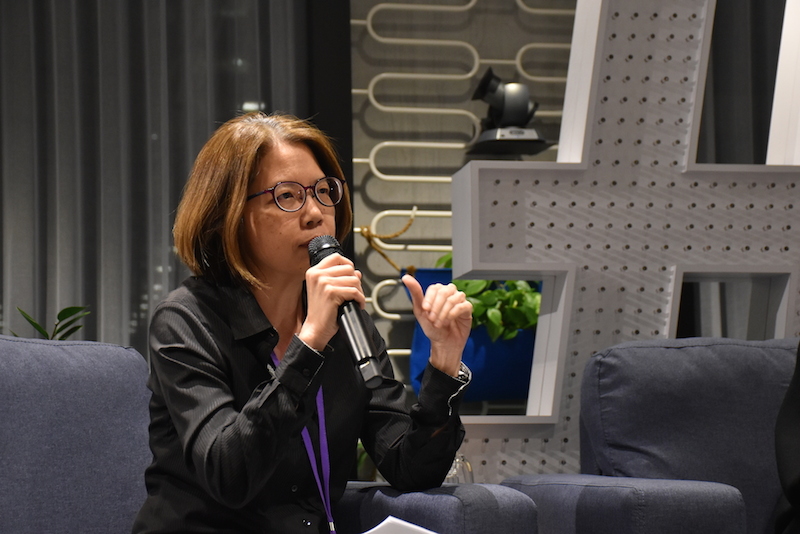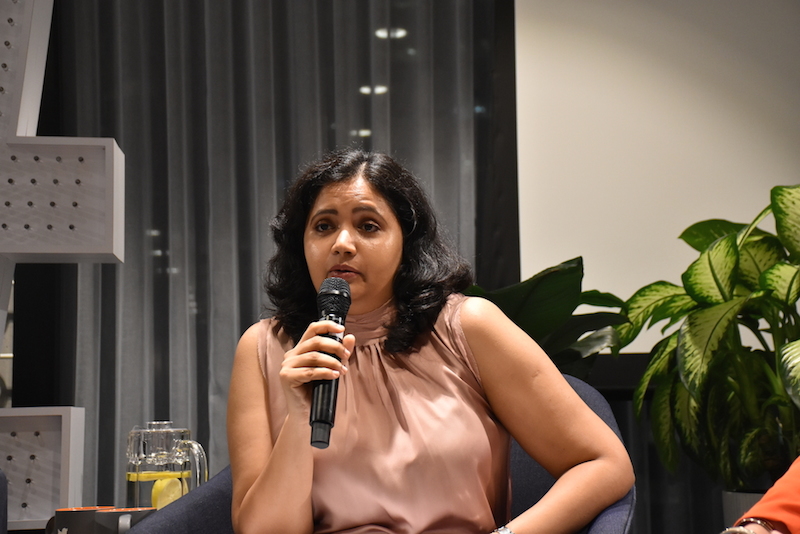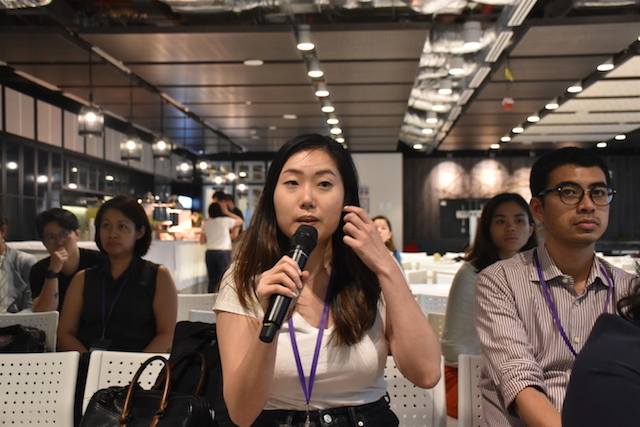-
Advocacy Theme
-
Tags
- Abortion
- Adoption
- Caregiving
- CEDAW
- Disability
- Domestic Violence
- Domestic Workers
- Harassment
- Healthcare
- Housing
- International/Regional Work
- Maintenance
- Media
- Migrant Spouses
- Migrant Workers
- Muslim Law
- National budget
- Parental Leave
- Parenthood
- Polygamy
- Population
- Race and religion
- Sexual Violence
- Sexuality Education
- Single Parents
- Social Support
- Sterilisation
- Women's Charter
A Recap: Inclusive Workplaces – Calling Out Motherhood Bias
May 29th, 2019 | Employment and Labour Rights, Family and Divorce, News, Women in Leadership

Written by Lim Ziqian, AWARE intern
Photographs by Megan Tan, AWARE intern
Being away from your child in order to provide for him. Seeking reprieve at home after a difficult day at the office, only to have to pacify a screaming toddler. Then choosing to do it all again tomorrow. Most working mothers are all too familiar with this heart-wrenching grind.
Balancing motherhood and work is already physically and emotionally gruelling—but throw in gender pay gaps, disrupted career mobility and family-unfriendly company policies, and the barriers for women who want to succeed both at home and at work rise even higher.
How can we make the workplace more egalitarian and less hostile to working mothers?
That was the overarching question that framed “Inclusive Workplaces – Calling Out Motherhood Bias”, a panel discussion on the evening of 24 May at Twitter’s Singapore headquarters. The panel was organised by Catalyse Consulting, the corporate advisory and training arm of AWARE, in partnership with human resources consulting firm Mercer, social enterprise Mums@Work and Twitter Singapore. The panel comprised a representative from each organisation, and was moderated by Roslina Chai, Managing Director of Catalyse.
Corinna Lim, Executive Director of AWARE, kicked off the panel discussion by describing the motherhood penalty, or “the price that career women pay when they try to combine motherhood and work” (detailed in this recent op-ed by AWARE’s Shailey Hingorani).

She discussed how workforce participation in Singapore steadily climbs and peaks for women in their late 20s. The figure then declines after women hit the age of 30 and, alarmingly, never picks up again.
A woman’s 30s are her prime childbearing years in Singapore. Indeed, important parenting years continue long after childbirth—for example, many mothers take career breaks to supervise their children during crucial exam periods such as PSLE. As one woman told Corinna, “I need to know that I did everything that I could for my child’s success.”
These women later find it difficult to re-penetrate the workforce. And the few who do manage to are paid significantly less than their male counterparts with equivalent qualifications. In fact, the wage gap between comparable male and female workers over a 40-year period was estimated to be a whopping $550,000—or the price of some HDB flats.
Godelieve van Dooren (who goes by G) from Mercer then spoke about the importance of policies that allow motherhood and work to intersect seamlessly. G mentioned that even though policies form the bedrock of how the workplace is structured, a company’s culture—i.e. whether colleagues are genuinely invested having working mothers on board, or whether the maternal presence is merely tokenistic—is equally, if not more, key to making motherhood work.
Contrary to popular notions, G said, the attitudes of peers provide the “biggest pressure” to shape trends, as opposed to the dictates of managers. G shared some anecdotes in which, despite the implementation of flexi-work policies, male colleagues had implied to her that she was “not pulling weight or not working hard enough” because of her family commitments.
Hence, while policies look good on paper, creating a collective consciousness at the office that genuinely empathises with working mothers is a prerequisite to having a truly egalitarian workplace.
Payal Pisal, a member of Twitter’s Parenthood Committee, then took her turn. She first recounted her own anxieties as a working mom—from opting for 7am shifts to drafting endless checklists for her nanny on the refrigerator. No matter how much she did, it never felt enough: “The guilt never goes away. It just keeps shifting.”

Thankfully, individuals and companies can each chip in to alleviate these worries. Payal said that the close-knit Parenthood Committee at Twitter was a source of comfort and solidarity in its members’ parenthood journeys. This helped cultivate a workplace where Payal felt motherhood was “respected” and “accepted” by managers and peers alike.
This cultural shift then helped to create an atmosphere that allowed Twitter’s family-friendly policies to be followed through—for instance, the company’s policy of up to 20 weeks of gender-neutral parental leave. #ShipMilk, another Twitter initiative, allows working mothers constantly on the go to ship breast milk back home to their babies.
Lastly, Sher-li Torrey spoke about founding Mums@Work in 2010. A career portal that supports working mothers in Singapore, Mums@Work lists job openings with flexible arrangements and is exclusive to mothers.
Mums@Work has evolved over the years in tandem with the dynamic needs of working mothers. The enterprise now also supports mothers in setting up their own businesses as mumpreneurs.
Sher-li acknowledged that she alone could not effect radical change in society, but that she hopes her enterprise will create opportunities and “[get] the employers to change their mindsets” about working mothers.

Finally, the panel discussion concluded with a Q&A and networking session.
Motherhood and work should not be mutually exclusive. Granted, Singapore has made laudable strides in levelling the playing field for working mothers. Evidently, however, more can be done to allow bright and ambitious mothers to truly have the best of both worlds.



